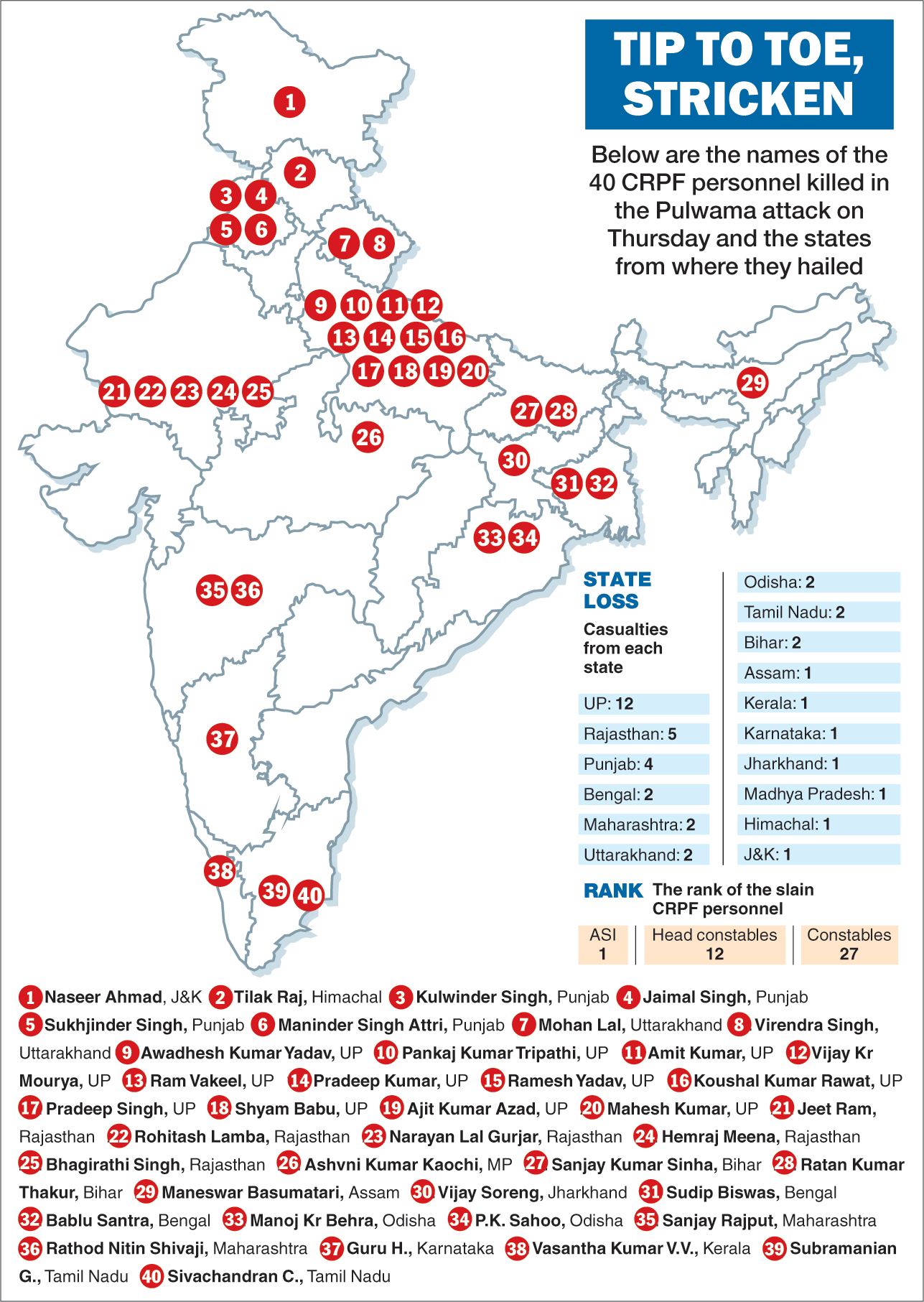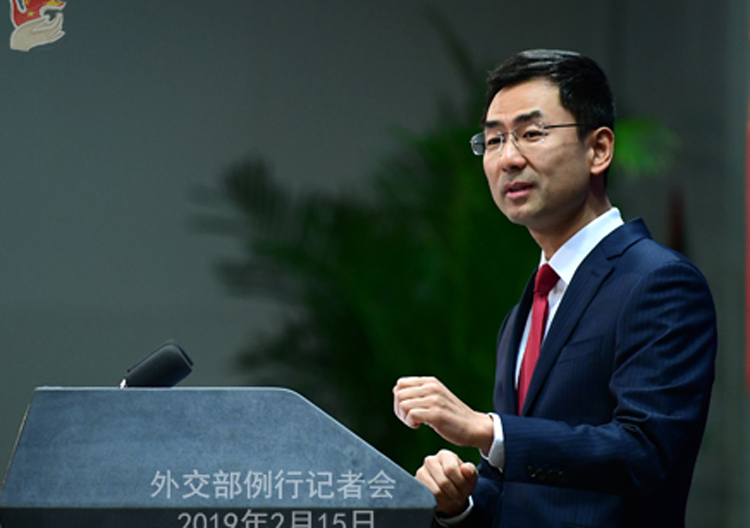India on Friday launched a diplomatic offensive against Pakistan to isolate it in the comity of nations for continuing to harbour terrorists, a day after the Pakistan-based Jaish-e-Mohammad claimed responsibility for the Pulwama terror strike.
After the cabinet committee on security decided early in the day to withdraw the “most favoured nation” status granted to Pakistan in 1996 in keeping with World Trade Organisation stipulations, the foreign office began implementing the second decision — to isolate Islamabad and expose its double speak on terror.
Foreign secretary Vijay Gokhale briefed 25 heads of missions based in Delhi. Sources said he left them in no doubt about Pakistan’s hand in the attack and the role played by not just Islamabad but also Jaish. Gokhale told the envoys how Pakistan continued to use terrorism as an instrument of state policy.
All P-5 countries — the US, Russia, China, the UK and France — were briefed, as was every South Asian country except Pakistan. Other important partners briefed included Japan, Germany, South Korea, Israel, Australia and Canada.
The foreign secretary summoned Pakistan’s high commissioner in India, Sohail Mahmood, to serve a very strong demarche. He was told that Pakistan must take immediate and verifiable action against Jaish and that it must immediately stop groups and individuals associated with terrorism from operating from its territory.
Gokhale also rejected the statement put out by Pakistan on Thursday night in which Islamabad, while expressing “grave concern” over the attack, rejected “any insinuation by elements in the Indian government and media circles that seek to link the attack to the state of Pakistan without investigations”.
India asked its high commissioner in Pakistan, Ajay Bisaria, to come to New Delhi for consultations and he is expected to arrive late on Friday night.
While India took solace in the fact that the US named Pakistan in the White House statement on the Pulwama attack, China held out little hope in changing its position on India’s efforts to proscribe Jaish founder and chief Masood Azhar as a designated terrorist under the 1267 Sanctions Committee of the UN. Using its veto power, China has blocked the move four times.
China did not issue a suo motu statement condemning the Pulwama attack, but many other countries reached out to India on Thursday night.
Beijing’s first response came on Friday morning at a media briefing where it condemned the terror strike but refused to back India’s appeal for the UN to list Azhar as a global terrorist.
PTI quoted Chinese foreign ministry spokesperson Geng Shuang as saying: “As for the issue of listing, I could tell you that the 1267 Committee of the Security Council has a clear stipulation on the listing and procedure of the terrorist organisations.”
He added: “The JeM has been included in the Security Council terrorism sanctions list. China will continue to handle the relevant sanctions issue in a constructive and responsible manner.”
China is deeply invested in Pakistan, particularly the China-Pakistan Economic Corridor (CPEC) that runs from the Gwadar port on the Arabian Sea in Balochistan through every Pakistani province into Xinjiang, and would be loath to support India if New Delhi decides to exercise a military option, limited or otherwise.
US national security adviser John Bolton had a telephone conversation with his Indian counterpart Ajit Doval, expressing solidarity with India. Sources said the US, having announced a troop withdrawal from Afghanistan, would not want Pakistan’s focus diverted to its eastern border.
With Saudi Arabia’s crown prince expected in New Delhi early next week, India is working on pencilling in a condemnation of terrorism originating from Pakistan in the joint statement.












